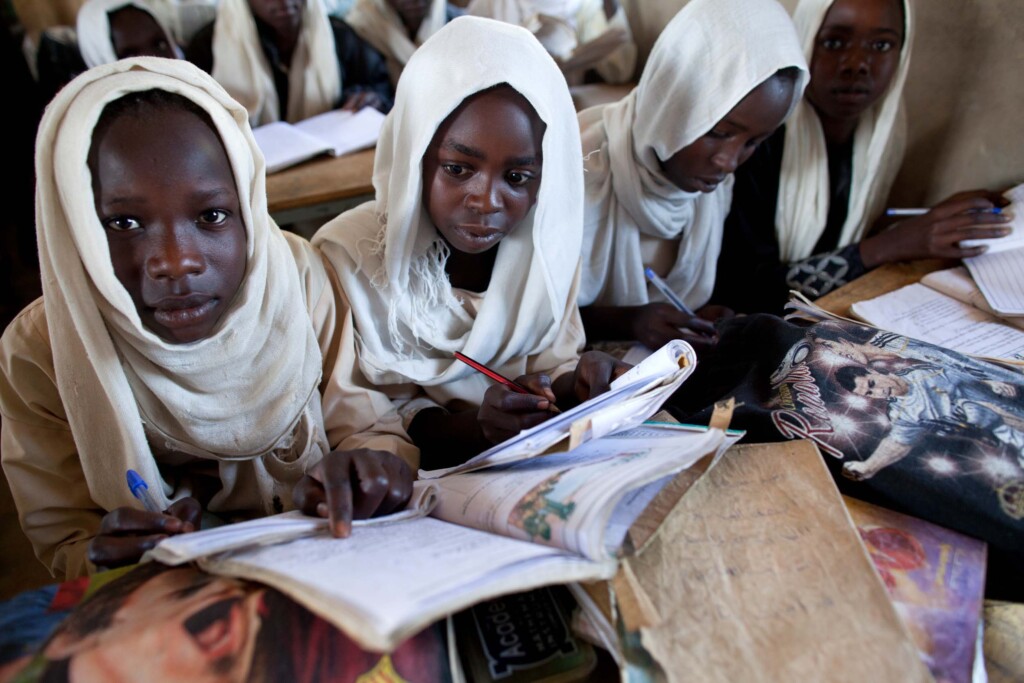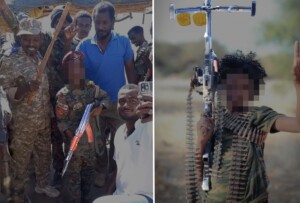Teachers call for education to resume in Sudan

School children in Darfur (File photo: Albert González Farran / UNAMID)
More than 60 Sudanese organisations, associations, political parties, and national figures from across the political and intellectual spectrum, have submitted a memorandum on the deplorable situation of education in Sudan. The memorandum, initiated by the Sudanese Teachers’ Committee, calls for an end to the war, and calls on parties concerned with education to accelerate coordination efforts aimed at creating a safe environment for the resumption of the educational process in Sudan.
The memorandum, signed by 61 parties and movements affiliated with Forces for Freedom and Change (FFC) Forces of Change (FFC), the Communist Party of Sudan, the Sudanese Arab Socialist Ba’ath Party, as well as trade unions, journalists, doctors, lawyers, engineers, and other professionals groups, as well as several civil society organisations, was submitted to the Sudanese Armed Forces (SAF), the Rapid Support Forces (RSF), the secretary-general of the United Nations, international organisations, especially UNESCO, UNICEF, the African Union, the Intergovernmental Authority on Development (IGAD), and the League of Arab states (Arab League).
Devastating effects
The teachers state that the war of April 15 2023, had and continues to have devastating effects on all aspects of economic, social, political, and cultural life in Sudan, especially the education sector, which suffers the greatest burden of destruction. Public institutions have stopped working since the start of the war, with schools and offices of education departments having been damaged, in addition to the deterioration of the conditions for more than 350,000 public education workers, and that the future of more than 11 million students is at risk. The memorandum confirms that the educational system has been destroyed to such an extent that it will require a huge effort to restore it to its normal state.
‘Three million pupils, to the risk of reverting to illiteracy…’
The absence of children from school for about a year, exposed the pupils of the first stage (grades 1-3), including about three million pupils, to the risk of reverting to illiteracy; coupled with steep school dropout rates due to the long duration of the war.
Avery large number of schools in war zones were subjected to massive destruction either because they were used as military barracks, or were subjected to indiscriminate shelling, which requires huge resources to rebuild to receive students after the war ends.
The memo also referred to the transformation of schools into shelter centres for displaced people. For instance, about 900 schools in El Gezira and 401 schools in El Gedaref are hosting displaced. Most education workers have not been paid since the start of the war, except for a few states where payment has been made for a limited period, the memo states.
Backlog
The closure of schools has also caused a backlog of students who have yet to complete the Sudan Secondary School Certificate, with the educational process having stopped for most Sudanese families. The memo calls on all the warring parties to immediately stop the war so that the people can once again enjoy security, which is a prerequisite for the continuity of the educational process and the acceleration of coordination of efforts aimed at creating a safe environment for its resumption.
As previously reported by Radio Dabanga, South Kordofan’s educational and medical landscape depicts a dire situation, especially in the areas under control of the Sudan People’s Liberation Movement-North led by Abdelaziz El Hilu (SPLM-N El Hilu), as stated by the secretary of education in the Nuba Mountains, Danial Ibrahim, in an interview in February.
Also in February, the Sudan Teachers’ Committee in South Darfur dismissed the decision made by the state Minister of Education to open schools, describing it as “lacking realism”.
The committee asserted in a press statement that it will be impossible to implement the ministry’s decision to reopen schools next week, saying it failed to consider “the circumstances of the displaced sheltering in the school, people affected by the ongoing conflict, and the deteriorating work environment for educators”.











 and then
and then